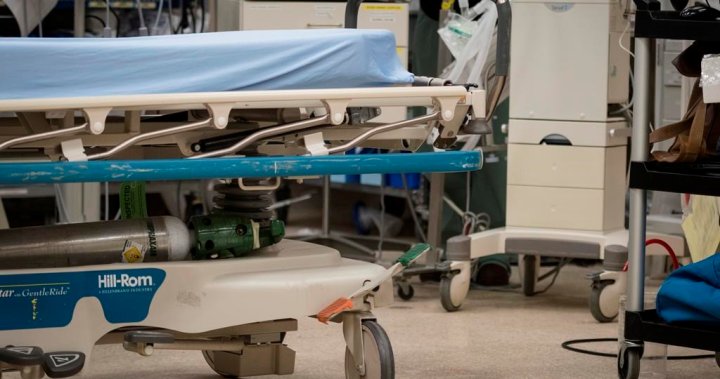
Cancer surgery delays caused by COVID-19 could lead to shorter life spans: study
Global News
Cancer surgery delays brought on by the COVID-19 pandemic could impact long-term survival for many patients, a new Canadian study shows.
Cancer surgery delays brought on by the COVID-19 pandemic could affect long-term survival for many patients, a new Canadian study shows.
Among the challenges faced by Canada’s health-care system more than two years into the pandemic is the backlog of delayed surgeries and procedures that could take years to clear.
The new Canadian Medical Association Journal (CMAJ) study adds to the growing body of evidence examining the unintended consequences of the pandemic on patients with cancer.
“Although de-escalation of cancer surgeries during the pandemic may be required to protect vulnerable populations and create health-care capacity, these slowdowns are associated with a risk of unintended harm,” the study, published March 21 in the CMAJ, says.
Using real world data on cancer care from 2019 to 2020, the research examined the impacts of delays on those awaiting surgery before and during the first six months of the pandemic, with a focus on the province of Ontario.
The simulated model population comprised 22,799 patients waiting for cancer surgery before the pandemic and 20,177 patients during. The mean wait time for surgery before COVID-19 was 25 days, which was bumped up to 32 days during the pandemic.
The study looked at those receiving non-emergency surgery, including those with breast, gastrointestinal, genital and urinary, gynecological, head and neck, liver and gallbladder, lung and prostate cancers, and found that during the first half a year of the pandemic, a total of 843 years of life of cancer patients across Ontario could be lost as a result of delays.
“Although our model was a simplification of the diverse disease trajectories,” Dr. Kelvin Chan, the senior author of this study and a medical oncologist at Odette Cancer Centre, Sunnybrook Health Sciences Centre, Toronto, Ontario, said that “the notable differences in survival by disease site” draws attention to the “need for measures of surgical prioritization during pandemic-related slowdowns.”
